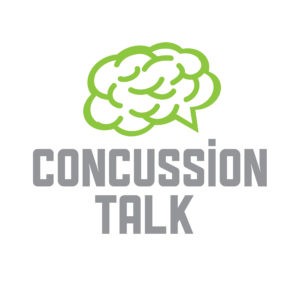Admittedly, I didn’t understand or even appreciate the importance of my physiotherapy rehab after my brain injury. When the doctors first told me that I’d be going to the Miller Centre (the rehab hospital in St. John’s, NL) I was really excited! At least I’d be out of the hospital! I couldn’t sleep. When I was eventually able to eat food it was terrible. I was bored to say the least. I was newly dealing with my double vision, so I couldn’t read. I figured, when I got to rehab, I’d be able to go to the rehab gym all day, at least it was something to do. They’d never seen me at rehab. I’ll be awesome! “Sure I can’t walk now, but you let me at that place for a few weeks and I’ll be running the stairs and doing burpees in the hall in no time!” “I’ll run home one day and won’t need to go back.” It’ll only be a few weeks, a few months tops.
At first, my motivation to get there was to get out of that GD hospital and get the whole ‘brain injury’ thing over with. It sucked and there was a bunch of stuff I’d rather be doing. I had a co-op job in Ottawa for my master’s program that I had to get to. Most of my friends from Queen’s were in Ontario, so I’d see them a lot on weekends, whenever. That was the goal. Bang this rehab out and get back to life. An inconvenience. A pretty big inconvenience, and a good story, but an inconvenience is all it was.
I eventually realized that to get back to my old self, physically, was going to take longer than a few months. My motivation was then much harder to define. By the time I realized that this process was going to take some time, I had been in physio for long enough to recognize that I needed more than my original, youthful exuberance to make real progress. Still, that exuberance carried me through the disappointment of: persistent boredom, food that somehow got worse at rehab, and lack of any real choice. Physio was my first session in the morning because I needed to be fresh for it, as I fatigued throughout the day. I really looked forward to it! It was something I could easily measure and it readily lent itself to my experience of physical repetition in sports practice.
For me, it was sports and my experiences in practicing and training. I guess you could say I was lucky that physio was the most important – and what I also deemed to be the most important – therapy I was to receive. I understood the importance of the monotony of physical repetition. I knew how to push my body. I knew when the physio meant when they said, ‘we’re going to do this, move your leg this way’. Most importantly, I knew the importance of failure. Physio was full of failure. Failure was my motivation. Success was my justification. An hour of failing to step on the block. Failing to balance on one leg. An hour of monotonous repetition and failure. Glorious failure. That’s what drove me.
It’s extremely lucky and sickly serendipitous that physiotherapy was most important for me. Had I been a musician, speech therapy may have been most important, and if I was a musician, I’d understand better what my vocal chords could do. Some people may look at this and think I’m trying to put a warm glow on a  bad situation. Maybe I am, but what I’m definitely not doing is kidding myself. Facts are facts. My brain injury put me in a bad situation. I needed to re-learn to walk and I needed help from fantastically skilled physiotherapists at the Miller Centre and Victoria General Hospital.
I deluded myself into thinking that my rehab would maybe last a couple of months. While it was depressing when I started to realize the long term nature of my injury, my erstwhile false belief that I’d be ‘back to normal’ quickly, worked out in my favour. I was so far down the road of devotion to physical rehabilitation that, by the time I truly grasped the unfortunate circumstance I was in, I was seeing really good progress from my months of concentrating all my efforts on my physio sessions. Naturally, that encouraged me to continue on the same path. I was also lucky that my physical recovery did not plateau for quite a while after starting rehab. This was likely due to my all out efforts when I began physio, and my fitness at the time of my injury. My physios at the time and I, think that my fitness and understanding of my body were very important, they helped me push farther, but it was also very inspiring to see others in rehab, who were not as fit or physically capable, push themselves every day. That’s the thing about rehab. Just when doing normal everyday tasks is slow, difficult and exhausting, that’s when you need to tire yourself further by focusing all, not some, not what’s left, all, of your energy on rehabilitation. It’s not fun. It can be monotonous and repetitive, but it’s more than worth it. Not for a tangible result, but for the unparalleled level of self-confidence. Oddly enough, that confidence comes from the giving everything you’ve got, only to fail repeatedly. All of those momentary failures build long term success.

Leave a Reply